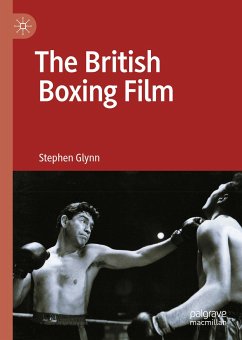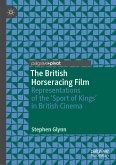"Stephen Glynn is the authority on sport in British cinema, and The British Boxing Film is a very welcome addition to his previous surveys of the people's game and the sport of kings. Glynn makes a highly persuasive case for the boxing picture as a site of significant cultural interest, especially through its engagement with class and gender politics. As relevant for social historians of sport as for film studies, The British Boxing Film is an undisputed knock-out winner."
James Chapman, Professor of Film Studies at the University of Leicester and editor of the Historical Journal of Film, Radio and Television.
This book constitutes the first full volume dedicated to an academic analysis of the sport of boxing as depicted in British film. Through close textual analysis, production and reception histories and readings that establish social, cultural and political contexts, the book explores the ways in which prizefighters, amateur boxers, managers and supporters (from Regency gentry to East End gangsters) are represented on the British screen. Exploring a complex and controversial sport, it addresses not only the pain-versus-reward dilemma that boxing necessarily engenders but also the frequently censorious attitude of those in authority with boxing's social development facilitating a wider study around issues of class, gender and race, latterly contesting the whole notion of 'Britishness'. Varying in scope from Northern circuit comedies to London-based 'ladsploitation' films, from auteur entries by Alfred Hitchcock to programme fillers by E.J. Fancey, the boxing film also serves as a prism through which one can trace major historical shifts in the British film industry
Stephen Glynn lectures in Film and Television at De Montfort University, UK. This volume completes a trilogy of sports genre studies for Palgrave, following on from The British Football Film (2018) and The British Horseracing Film (2019).
Dieser Download kann aus rechtlichen Gründen nur mit Rechnungsadresse in A, B, BG, CY, CZ, D, DK, EW, E, FIN, F, GR, HR, H, IRL, I, LT, L, LR, M, NL, PL, P, R, S, SLO, SK ausgeliefert werden.









